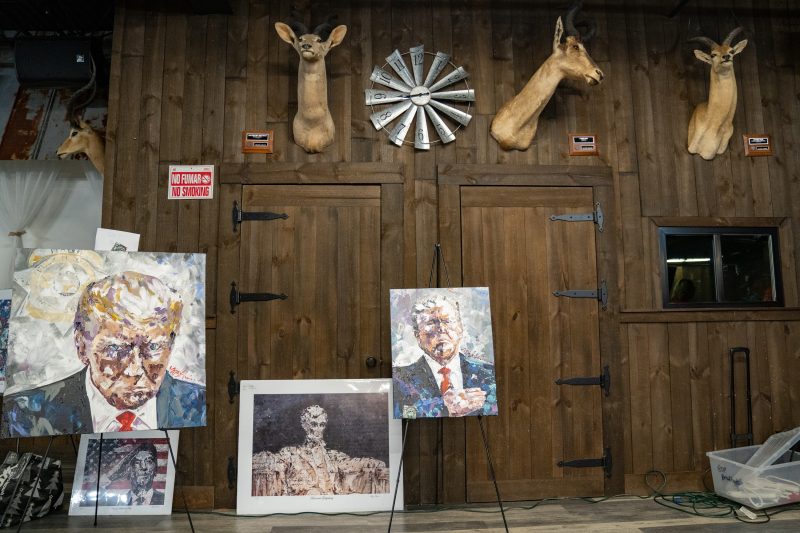In a political landscape characterized by divisiveness and uncertainty, the recent securing of their party’s presidential nominations by Joe Biden and Donald Trump has set the stage for what promises to be a contentious and closely watched presidential race. Both candidates now have the official backing of their respective parties, with Biden representing the Democratic Party and Trump rallying for the Republican Party. As the nation gears up for the upcoming election, the contrasting paths these two candidates have taken to secure their nominations offer a glimpse into the current political climate and the strategies at play.
For Joe Biden, the road to securing the Democratic nomination has been defined by a turbulent primary season that saw a diverse field of candidates vying for the chance to challenge President Trump. Despite facing setbacks early on and lagging behind in key primary states, Biden’s candidacy gained momentum following decisive victories in crucial contests like South Carolina and Super Tuesday. His message of unity, experience, and stability resonated with a broad spectrum of Democratic voters, ultimately propelling him to the front of the pack and solidifying his status as the party’s presumptive nominee. Biden’s ability to coalesce support from across the Democratic Party, from progressives to moderates, showcases his appeal as a unifying figure capable of bringing together disparate factions within the party.
On the other hand, Donald Trump’s securing of the Republican nomination represents a different narrative, characterized by the incumbent president’s strong hold on the GOP and his unrelenting commitment to energizing his base. As the sitting president, Trump faced minimal opposition within his party, with his leadership during a time of economic prosperity and a fervently loyal base of supporters securing his nomination without much resistance. Trump’s brash and unconventional approach to governance has solidified his position as a polarizing figure in American politics, with steadfast supporters praising his unapologetic style and detractors condemning his divisive rhetoric and policies. While some Republicans have voiced concerns about Trump’s leadership style and his handling of various issues, the party as a whole has rallied around him, with the convention providing a platform for Trump to energize his base and make his case for a second term.
As the stage is set for a showdown between Joe Biden and Donald Trump in the upcoming election, the differences in their paths to securing their party’s nominations highlight the contrasting dynamics at play within the Democratic and Republican parties. Biden’s journey has been marked by a resurgence fueled by broad-based support and a message of unity, while Trump’s path has been defined by his incumbency and ability to maintain a strong grip on the Republican base. The upcoming election promises to be a clash of ideologies and visions for the future of the country, with both candidates seeking to rally their respective supporters and win over crucial swing voters.
In the coming months, the American electorate will have the opportunity to weigh the contrasting styles and policies of Joe Biden and Donald Trump, ultimately determining the direction of the nation for the next four years. The stakes are high, with a deeply divided country grappling with a global pandemic, economic uncertainty, and social unrest. As the campaign unfolds and Election Day approaches, all eyes will be on the candidates as they make their case to the American people, and the outcome of the election will shape the future trajectory of the United States.

